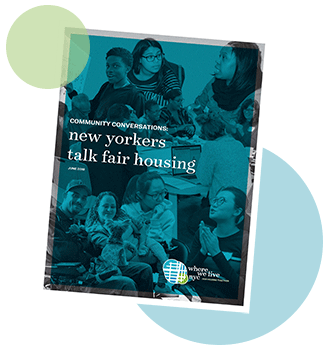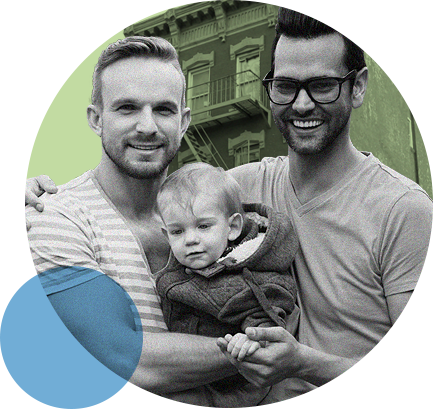To better understand how challenges like segregation and discrimination impact the lives of New Yorkers, the City and Hester Street connected with more than 700 residents across the five boroughs through 62 focus-group-style conversations in 15 different languages, hosted in partnership with community-based organizations to incorporate the stories, struggles, dreams for fair housing of New Yorkers into the planning process. Through these focus-group-style conversations, the City sought to understand the lived experiences of populations disproportionately impacted by housing discrimination, while also sharing tools, information, and resources to support residents in creating and advocating for change.
what the city learned
Through the Community Conversations, the City invited New Yorkers to reflect on how they make tough decisions about where to live, their varied experiences in searching for housing, how their home and neighborhood impact their lives, and what goals they have for their family and community. A summary of what was learned through these conversations is available in the Community Conversations: New Yorkers Talk Fair Housing report.
Download the Community Conversations Report
who was reached
The Community Conversations focused on engaging communities that often have less of a voice in government decision-making. Specifically, the City held conversations to understand the unique fair housing challenges for the following communities:
- People of color, including Black, Hispanic, and Asian New Yorkers
- Immigrants, including undocumented individuals and those with limited English proficiency
- People with disabilities, including mobility, sensory, and developmental disabilities
- LGBTQ individuals, including transgender and gender-nonconforming individuals
- Religious communities
- New Yorkers who receive rental assistance, including Section 8 Housing Choice Vouchers and City-administered programs, such as CityFHEPS
- NYCHA residents
- Survivors of domestic violence
- Justice-involved individuals
- Homeless or formerly homeless individuals

